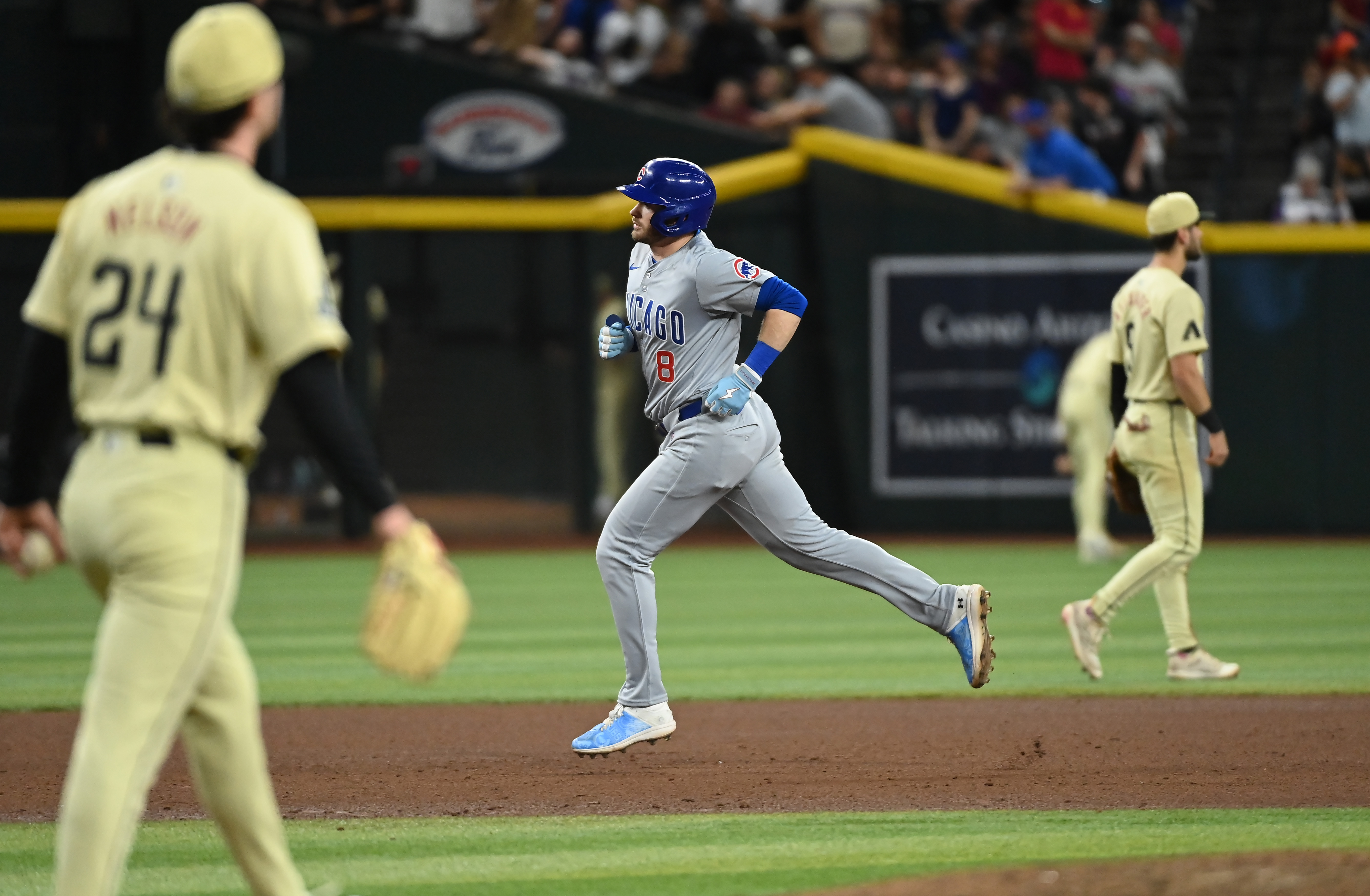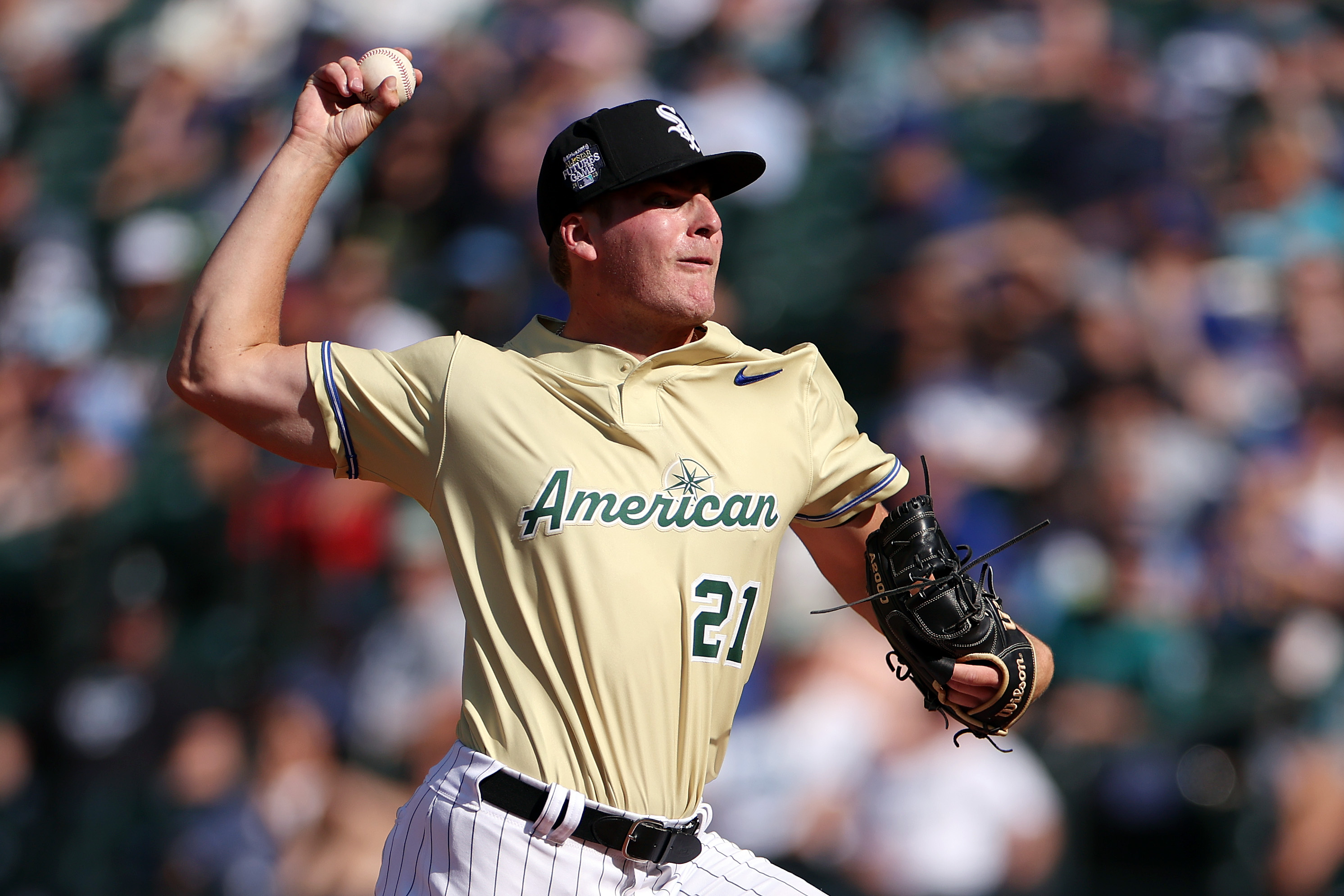In the 28 or so hours after the Cubs officially announced they were parting ways with Joe Maddon as a manager, Theo Epstein made it a point in several instances to mention the Cubs aren't looking for an anti-Joe or anything along those lines.
There's no doubt this result isn't fair to Maddon, whom Epstein called the "perfect guy for this team at the perfect time."
But the Cubs want change and that started with not offering an extension to the man that helped bring the organization a championship just three years ago.
So what do the Cubs want in their next manager? What qualities and traits would the ideal candidate possess?
Epstein attempted to answer that question in his end-of-season presser Monday, but he didn't want to get too specific (and he didn't mention anything about the next manager needing "Dancing with the Stars" experience).
Again, Epstein emphasized the qualities he and the Cubs front office are looking for are not a knock on Maddon, but rather focusing on what can help this team now and in the future.
"We struggled as an organization this year to make sure that with the major-league team, the whole was as good or better than the sum of the parts," Epstein said. "I think we had a lot of good individual performances; we had a lot of talent and ability. I think if we do our job the right way, we’re going to have a lot of talent next year. We’re going to score a lot of runs, we’re going to prevent a lot of runs.
MLB
"The next manager has to create an environment that turns that into wins. And that’s not solely on the manager at all. That’s roster construction and everything else. That’s what we’re looking for in a manager, is to try to help our group. Any team is looking for that in a manager. Come together and make sure the whole is as good or exceeds the sum of the parts.
"I think the next manager will be a success if he can find a way to get the most out of each player. That’s an obvious goal, but we want to make sure that the players that we have, we’re reaching them, we’re developing them, we’re providing an environment where they can continue to grow and thrive. If we have players that are gonna be successful major-league players, we have to find a way to make it here. I think that’s really important. That’s an organization-wide challenge, not just on the manager. The next manager, that’s going to be an important part of his responsibility."
Epstein has mentioned several times that — for whatever reason — the whole was not greater than the sum of the parts with this Cubs team in 2019.
He's right. As a whole, the Cubs won only 84 games and missed the playoffs by 5 games. But break it down individually and there are a lot of good things:
—Kris Bryant and Willson Contreras had resurgent seasons and both made the All-Star team.
—Yu Darvish was one of the best pitchers in baseball in the second half of the season.
—Kyle Schwarber and Victor Caratini had true breakout campaigns.
—Anthony Rizzo maintained his steady production.
—Javy Baez was an All-Star starter and one of the best players in baseball before he got hurt.
—Nicholas Castellanos notched an OPS over 1.000 in his two months in a Cubs uniform.
—Jason Heyward had his best offensive season in Chicago.
—Rowan Wick, Kyle Ryan and Brad Wieck emerged as reliable relief options.
—Brandon Kintzler and Tyler Chatwood had impactful bounceback seasons.
—Steve Cishek struggled in some big moments but still wound up posting an ERA under 3.00.
—Kyle Hendricks couldn't quite find consistency yet finished 13th in the NL in ERA and WHIP.
That's 16 players who can head into the winter with a pretty high level of pride in their own individual seasons.
So, again, how did this team fall short?
The Cubs don't quite know and while they insist they're not pinning that on Maddon, they want the next manager to make sure history doesn't repeat itself in 2020 and beyond.
"Cultivating a winning culture behind the scenes," Epstein said. "We’ve obviously had a winning culture [and] Joe did an unbelievable job creating that. Again, at this moment in time, I think it’s important for us to pick certain areas of emphasis that will reach this group and help us meet our current challenges, not the challenges that we’ve had over the last five years. Picking priorities and values to emphasize work, I think is gonna be really important.
"For this group at this time, we need to find a way to create a culture and environment that compels every player to push himself, to be the absolute best version of himself, to be the absolute best player that he can be. It's a culture where that’s expected. If a player joins our culture, he's lifted up by the culture in terms of the amount of work, the habits, leaving no stone unturned to be the best version of himself that he can be. Joe, again, was wonderful at this.
"But it’s gonna be important for the next manager of this particular group at this time to find a way to foster a team identity. I think this group, our routines tended to me more individualized. There wasn’t a lot of work as a team, and I think it’s gonna be important for this group that we find time to work as a team, that we find time to assemble as a team, that we find ways to deliver messages to the team so that there can be a greater sense of team identity and purpose for this group. I think that's something that we need."
The Cubs could certainly use a team identity. What was it in 2019? If anything, it was inconsistency, as Baez admitted they couldn't get hot for even two consecutive weeks.
Again, that's not a knock on Maddon. If anything, it's a knock on the "winner's trap" this organization has fallen into over the last couple seasons.
That also moves into accountability, which was another point of emphasis Epstein has in searching for the next manager of a Cubs team coming off a season in which they ranked at or near the top in both outs on the basepaths and fielding errors.
"We were pretty mistake prone this year," he said. "Again, [this is an] organization-wide challenge, not on the manager, but the next manager should be a part of this — helping to create a culture of accountability. There’s a sense that sloppy mistakes, mental mistakes, aren’t tolerated. There's an expected level of focus that we all work together to establish that mitigates the amount of mistakes like that. A sense of grind, grinding from the first pitch of the season through the end.
"With the last couple Septembers, our team sometimes, we just expected to get it done in September and the second half 'cause we always have. I think the last two Septembers have proven that you can't take that approach. You have to find a way to grind from the beginning. It's a challenge, and certainly some years we were better at it than others. It's not something that falls solely on the manager, but I think that's a unique challenge for the next manager of this group going forward."
Of course, that accountability needs to happen from inside the clubhouse, too. Maddon always said players should police themselves to a certain extent, and he's right.
David Ross excelled at that in his two years with the club. Pedro Strop has done a great job of that with Baez, in particular. Epstein said veteran Daniel Descalso filled that role well in 2019 despite his difficult season on the field.
That's not to say Ross would find similar success in that area if he were named the next manager, however. It will ultimately be up to the players.
As for the players, what do they want to see from the new guy running the ship?
"I think at the end of the day, you want a genuine person that will shoot you straight and try to win every game," Jon Lester said simply.
Communication was also a central focus for Rizzo when asked what he wants to see in the next skipper.
"For me, it's just different because I'm usually playing first base and hitting third every day," he said. "I can't relate more to the guys who split playing time. I know how hard that is for them. So being able to communicate with your bullpen and guys that aren't playing every single day, just keeping them up because it's not easy to have good games and not play or bad games and sit for a while. That line of communication is very important just to keep everyone oiled up and in sync."


